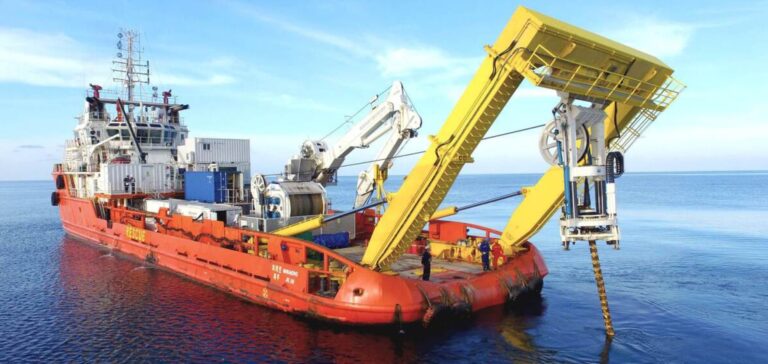Germany and the three Baltic States, Estonia, Latvia and Lithuania, want to strengthen their energy sovereignty and cooperate more closely, in view of the current background of war in Ukraine. To this end, at the Baltic Offshore Wind Forum held at the German Federal Foreign Office in Berlin, the German transmission system operator, 50Hertz, and its Estonian, Latvian and Lithuanian counterparts agreed to intensify their cooperation.
Agreement on the Baltic WindConnector project
In another letter of intent, 50Hertz and Elering (Estonia) have agreed on a joint hybrid submarine cable project called Baltic WindConnector in the Baltic Sea between Estonia and Germany. The Baltic WindConnector will be about 750 kilometers long and will land on the coast of Mecklenburg-Western Pomerania. In addition to utilizing the green energy potential through the connection of future large offshore wind farms off the Estonian Baltic Sea coast, both countries and Central Europe will benefit from increased security of supply. At the same time, Estonia has the opportunity to become an exporter of green electricity for the European electricity market.
The advantage for Germany is to diversify its green electricity sources in order to achieve climate neutrality by 2045 and to almost completely decarbonize its industry. With a hybrid interconnector, wind farms feed their electricity into a transmission system that can also be used for European electricity trading. It thus fulfills a double function. This requires the construction of one or more conversion plants off the Estonian coast, where electricity can be stored, increased to a higher voltage level, converted to direct current, and then transported to the connected countries according to demand.
Towards better cooperation
The second letter of intent with the three Baltic transmission system operators aims to facilitate cooperation in the offshore sector in various configurations. Behind this lies the vision of realizing “offshore grids” off the coasts of Lithuania and Latvia, through which electricity can be brought to shore efficiently and in accordance with market requirements. 50Hertz is a pioneer in this field and is already working closely with the Danish grid operator Energinet in the Baltic Sea. Together, the companies operate the Combined Grid Solution – Kriegers Flak hybrid interconnector. 50Hertz and Energinet also want to develop the Bornholm Energy Island project, an electrical hub on the Baltic Sea island of Bornholm, through which wind power will flow to Germany and Denmark depending on demand.






















